Events
Delegation of the Lithuanian Academy of Sciences Visits Albania
28 10 2024-f7c8591ade07787b34f21a3e42e0056b.jpg)
On 15–18 October, a delegation of the Lithuanian Academy of Sciences – Prof. Jūras Banys, the president, Prof. Zenonas Dabkevičius, the vice-president, Prof. Leonas Valkūnas, the chair of the Division of Mathematical, Physical, and Chemical Sciences, and Violeta Skirgailienė, a senior specialist for international relations (and the author of this report) – visited the Academy of Sciences of Albania and other scientific and research institutions in this country. This was a return visit of our Academy's representatives, as in September 2023, a delegation of the Academy of Sciences of Albania visited the Lithuanian Academy of Sciences, and a bilateral scientific cooperation agreement between the two academies was signed.
On 16 October, a protocol to the agreement, providing for specific aspects of bilateral exchanges, was signed in Tirana. The purpose of this document is to help researchers from the two countries learn about research projects in the partner country, to initiate joint projects, to carry out ongoing joint research, and to organise joint scientific conferences. Three weeks per year are planned for bilateral scientific exchanges.
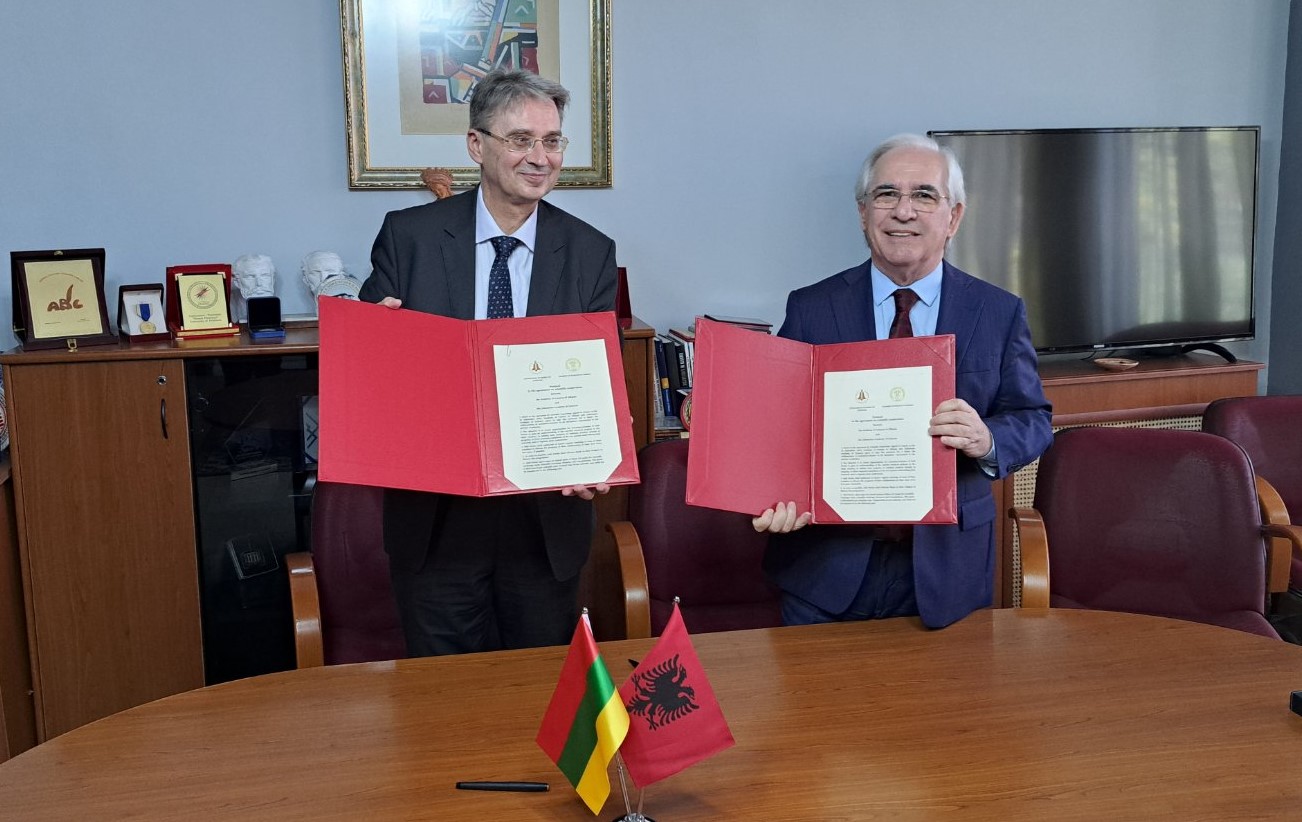
Presidents Prof. Jūras Banys and Prof. Skënder Gjinushi signed a protocol of bilateral scientific cooperation.
After the signing of the protocol, Prof. Skënder Gjinushi, the president of the Academy of Sciences of Albania, presented the Academy’s activities and structure. A meeting was held with the leadership of the Albanian academy, its members, heads and representatives of its sections, commissions and institutes. Founded in 1972, the Academy of Sciences of Albania is the country’s leading scientific institution. Members of the academy are outstanding scholars working in research centres and other organisations in Albania and beyond. They are full members (academicians), associate members, honorary members, emeriti, and corresponding members.
The Academy of Sciences of Albania has established the institutes of archaeology, history, linguistics and literature, and anthropology, the Centre for Art Studies, and the Centre for Encyclopaedic and Albanological Publications. Temporary (virtual) research units and institutes have also been set up for biotechnology and genetics, geophysics, water resources, geosciences and geoengineering, artificial intelligence, nanotechnology, energy, physics, mathematics, Albanological studies, and biotechnology and genetics research. It was pointed out that the Academy of Sciences of Albania had recently established its Young Academy on the model of the respective division of the Lithuanian Academy of Sciences. The Academy of Sciences of Albania has the country's largest academic library.
Prof. Jūras Banys presented the structure and activities of the Lithuanian Academy of Sciences to the Albanian academicians.
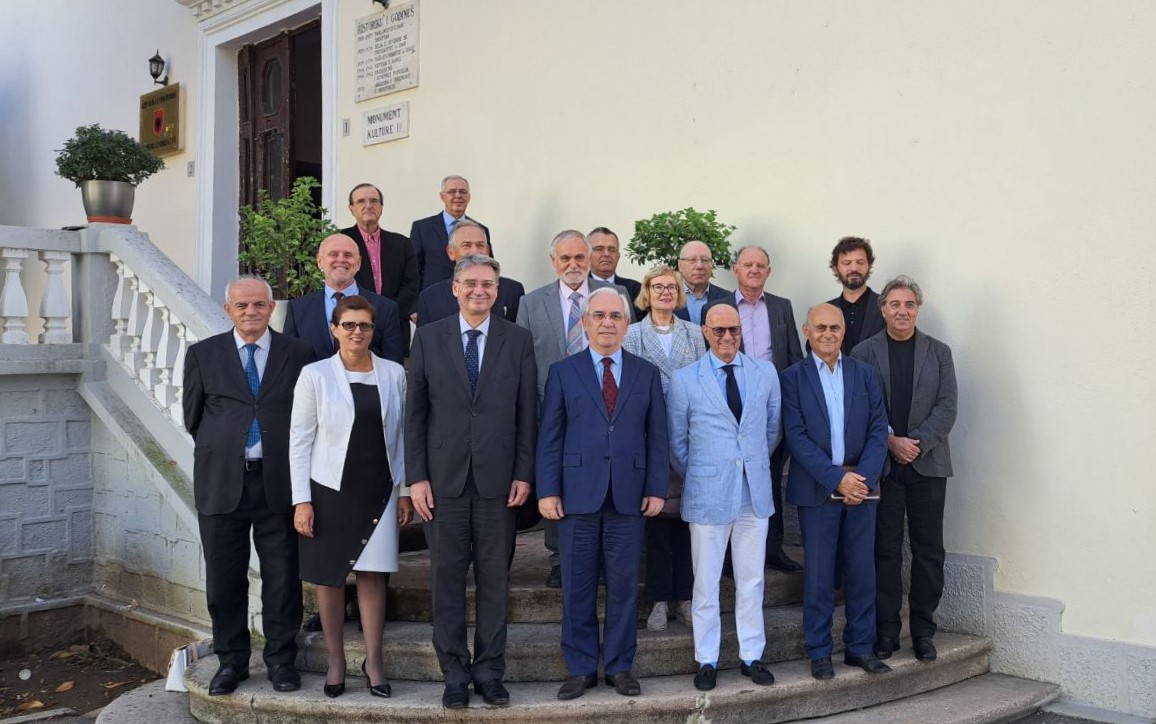
Members of the delegation of the Lithuanian Academy of Sciences with the leadership and academicians of the Academy of Sciences of Albania.
The delegation of the Lithuanian Academy of Sciences visited the Archaeological Museum of the Institute of Archaeology of the Academy of Sciences of Albania and the Bunk’Art, and on 17 October travelled to Korçë, which is the largest city in eastern Albania and an important cultural and industrial centre. As part of the cultural programme in Korçë, the delegation also visited the National Museum of Medieval Art that has over 6000 icons in its collections and the site of archaeologicqal excavations in the ancient settlement of Pogradec.
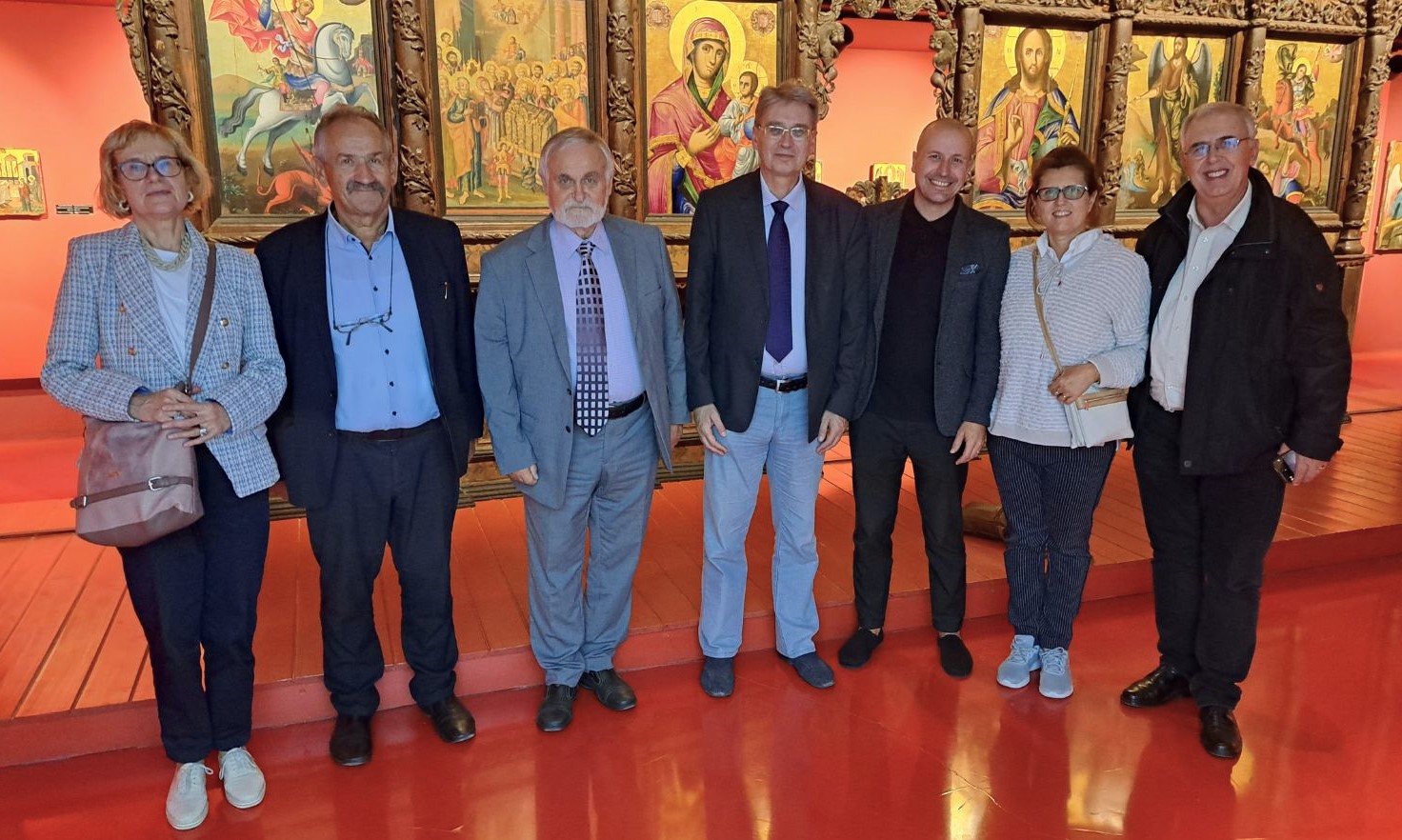
At the National Museum of Medieval Art in Korçë.
In Korçë, the delegation visited the Fan S. Noli University. Rector Prof. Dr Lorenc Economi spoke of the activities of the university and introduced the its study programmes. The main fields of study are education, languages, economics, natural sciences, and agriculture. Currently, around 3000 students are studying at the university’s has four faculties: of economics, education and philology, natural sciences, and agriculture. President Banys briefed the representatives of the University on the education system in Lithuania.
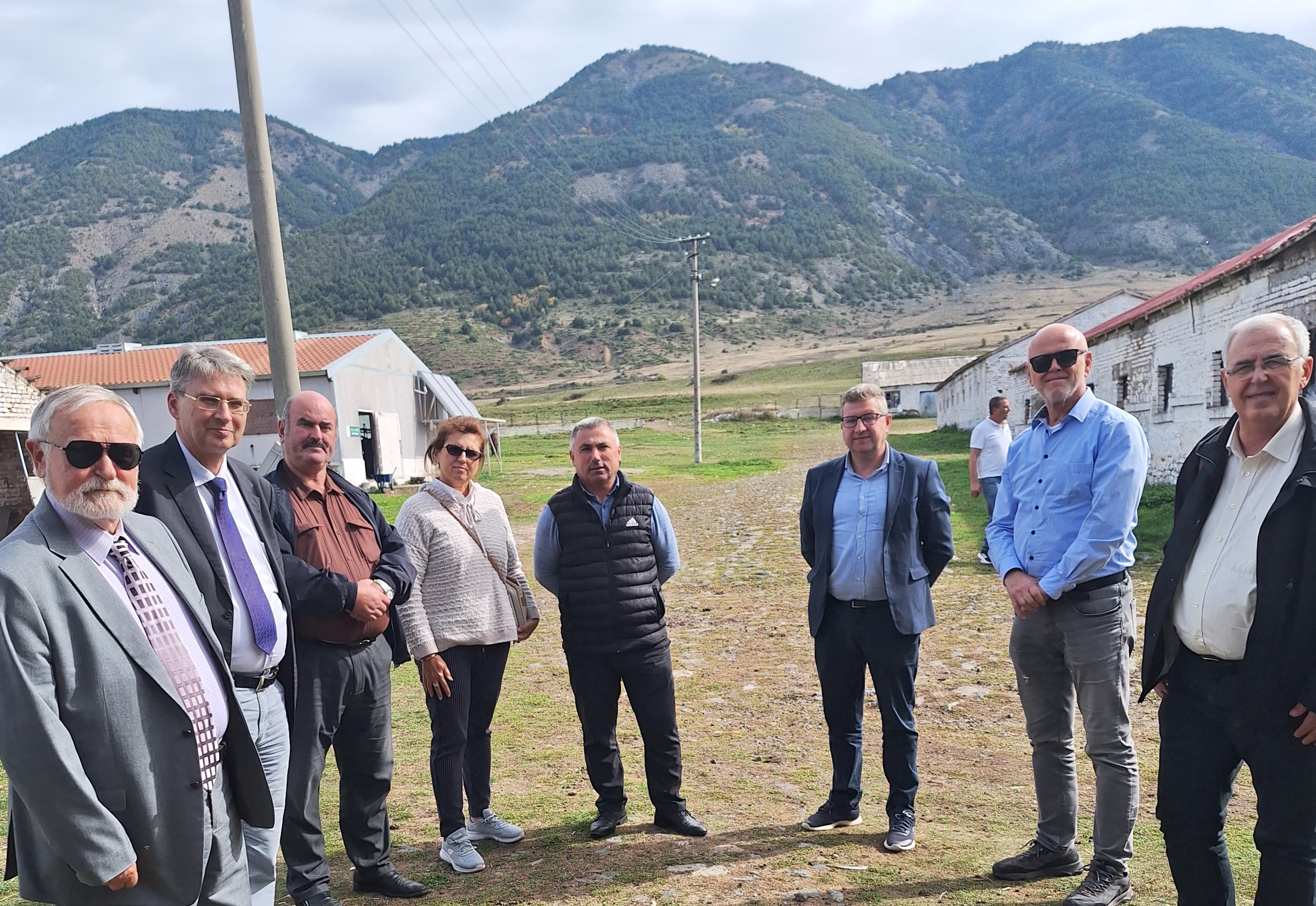
A visit to the Agricultural Technology Centre in Korçë.
The delegation of the Lithuanian Academy of Sciences visited the Agricultural Technology Centre in Korçë. There are several such centres in Albania. The main task of this centre is breeding agricultural cattle. Specific training programmes have been developed for agricultural professionals and farmers. The Agricultural Technology Centre in Korçë works closely with the Agricultural University of Tirana, which the delegation visited on the third day of their stay in Albania.
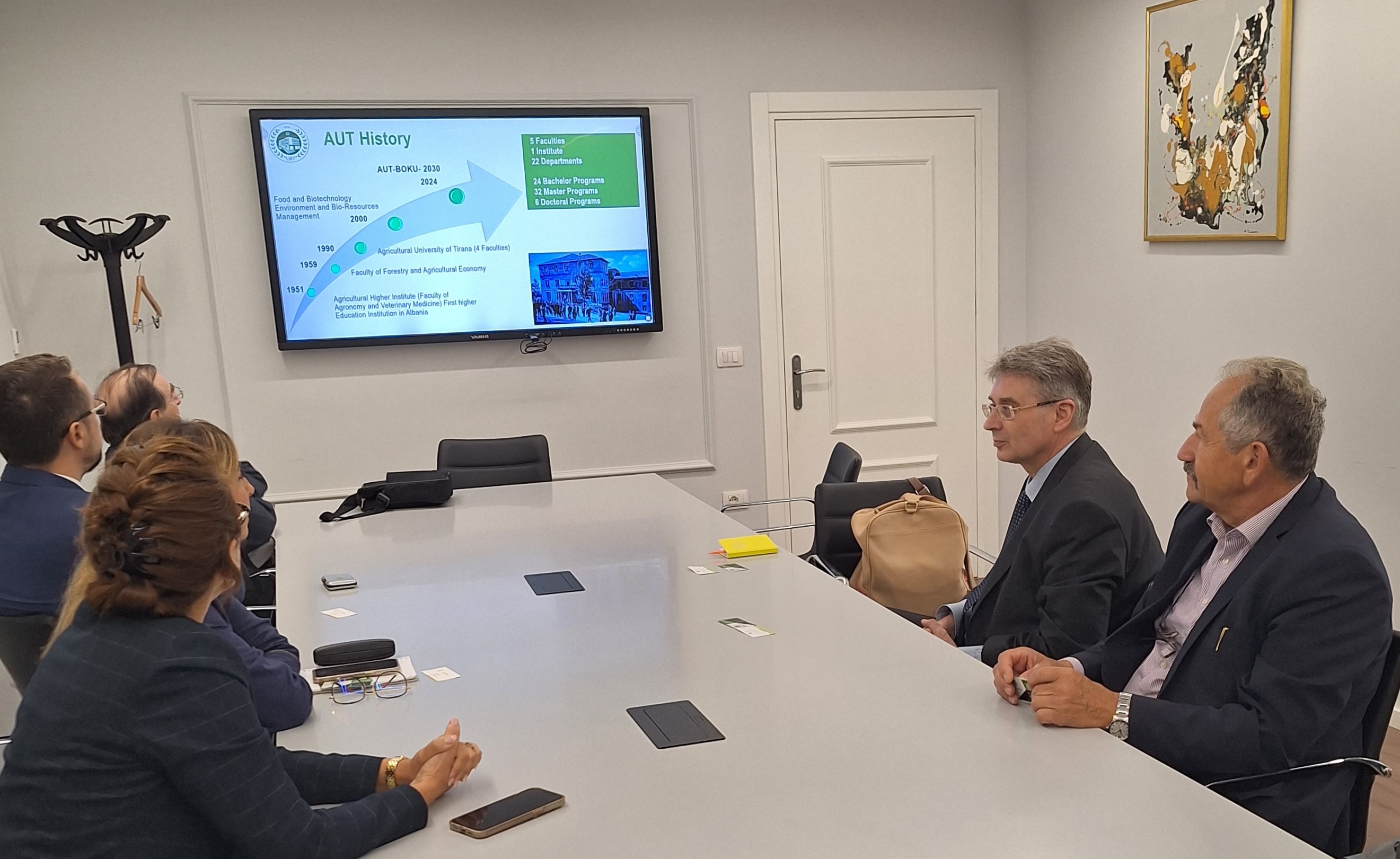
A meeting at the Agricultural University of Tirana.
Founded in 1951, the university was the first academic institution in Albania known as the Higher Institute of Agriculture at the time. With around 6000 students and 600 staff, it is currently the only agricultural university in Albania and the most important centre for education, research, agriculture, and nature protection. It has five faculties and one institute and offers courses in agronomy, veterinary medicine, forestry, ecology, agribusiness, and similar subjects. So far, the university has signed 160 international cooperation agreements. Prof. Fatbardh Sallaku, the rector of the Agricultural University of Tirana, and other leaders of this institution of higher learning spoke of broader opportunities for cooperation in the fields of agronomy, forestry, ecology, veterinary medicine, and agroeconomics.
The delegation had the chance to visit the unique Agrotourism Centre in Tirana, which started its activities in 2020. The two-hectare single-family-run agricultural centre, also known as the ‘Gardens of Eden’, is engaged in organic farming and husbandry and grows traditional Albanian food: fresh vegetables, poultry, and dairy products. The farm has an excellent restaurant serving locally grown produce.
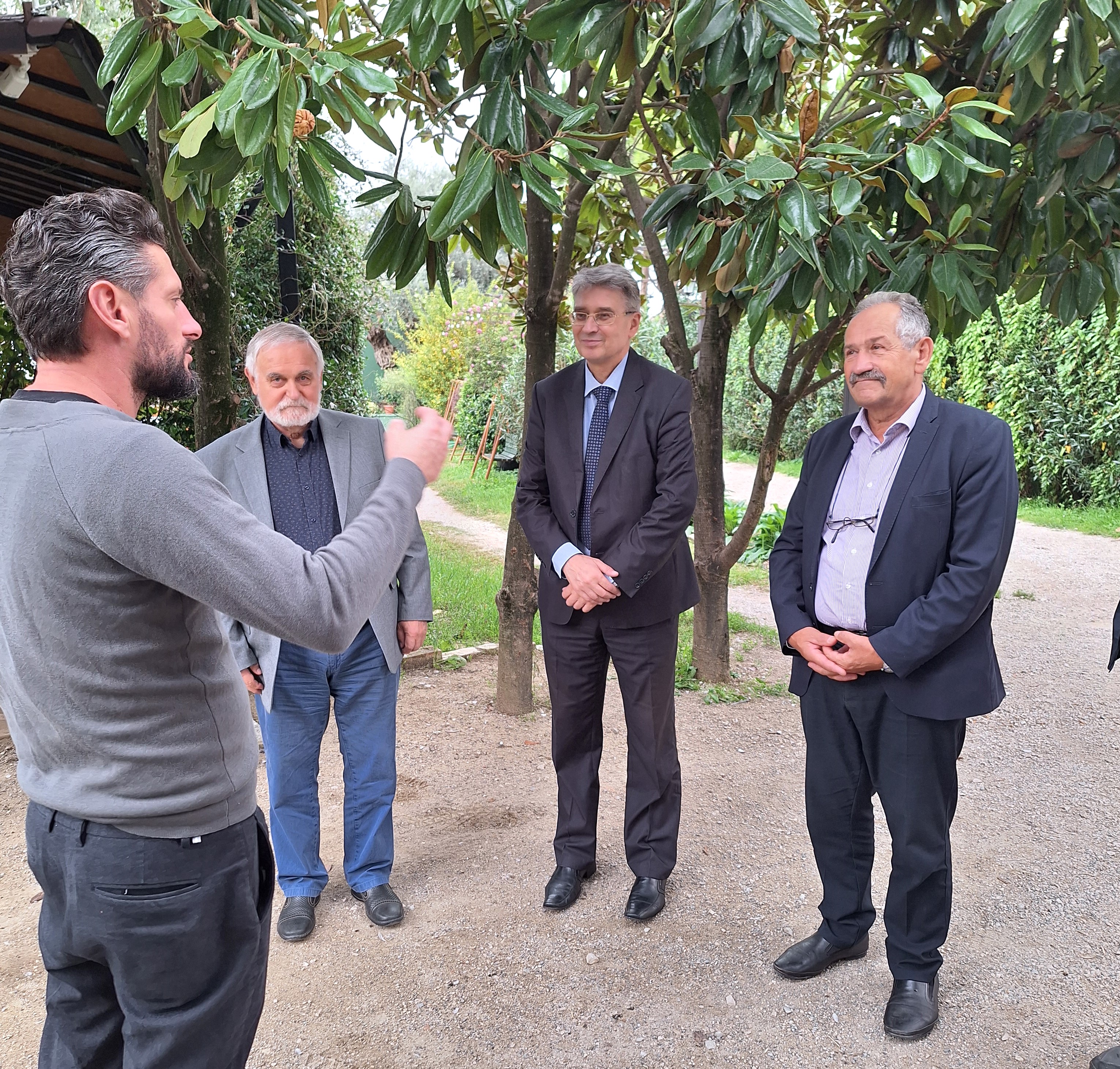
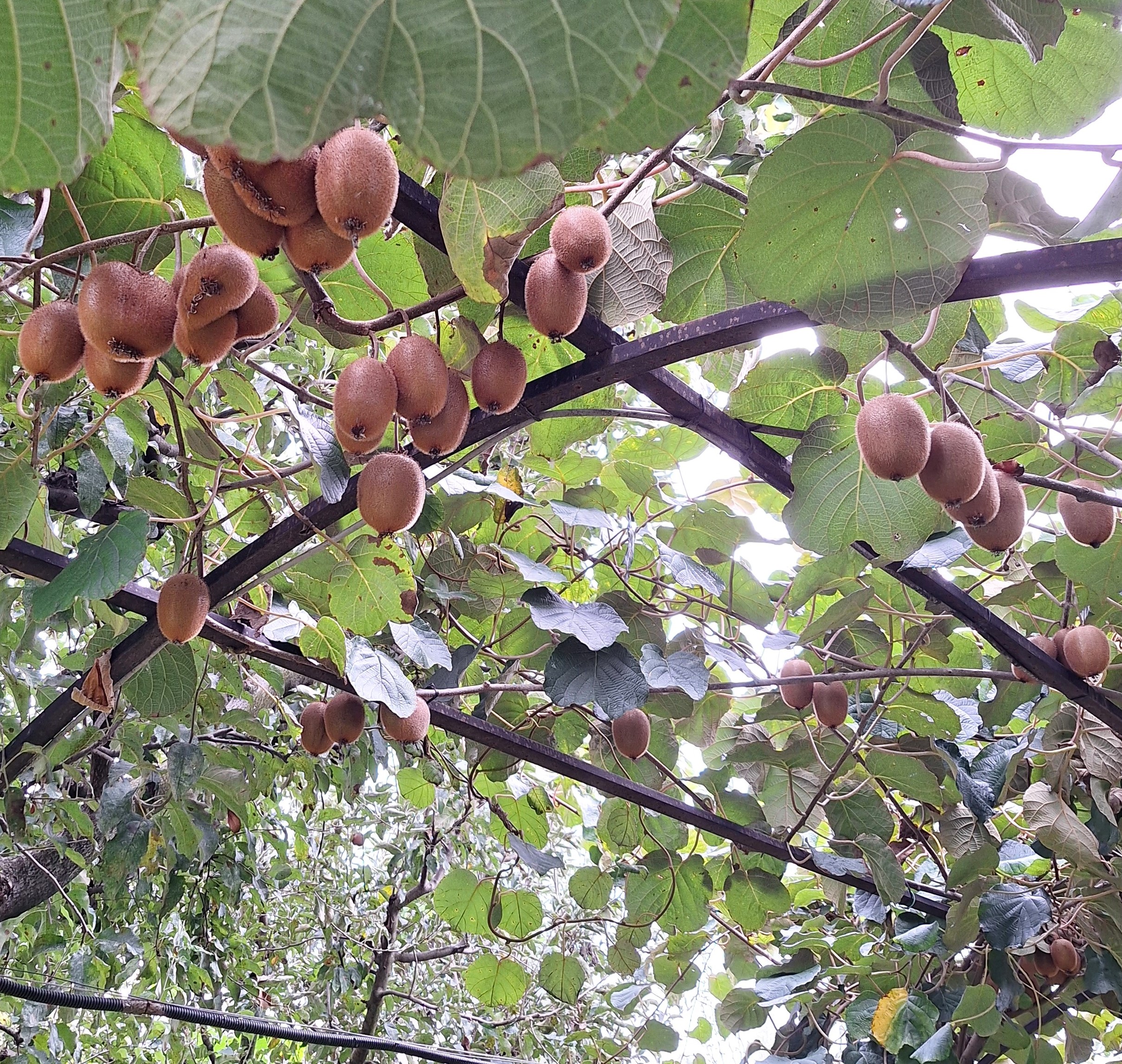
The delegation of the Lithuanian Academy of Sciences at the Agrotourism Centre.
In all the institutions visited, professors Jūras Banys, Zenonas Dabkevičius, and Leonas Valkūnas spoke of the structure of science and studies in Lithuania and gave overviews of the achievements of modern Lithuanian science. Areas for bilateral cooperation were explored as the links between Lithuanian and Albanian scientists are still in their early stages. Academicians Nazim Gruda and Anila Hoda, who are friends of Lithuania, accompanied the delegation on all its visits.
The delegation of the Lithuanian Academy of Sciences is grateful to the leaders, members, and the staff of the Academy of Sciences of Albania for their generous hospitality.
Prepared by Violeta Skirgailienė, Senior Specialist for International Relations
Photography Zenonas Dabkevičius, Leonas Valkūnas, and Violeta Skirgailienė
Translated by Diana Barnard
